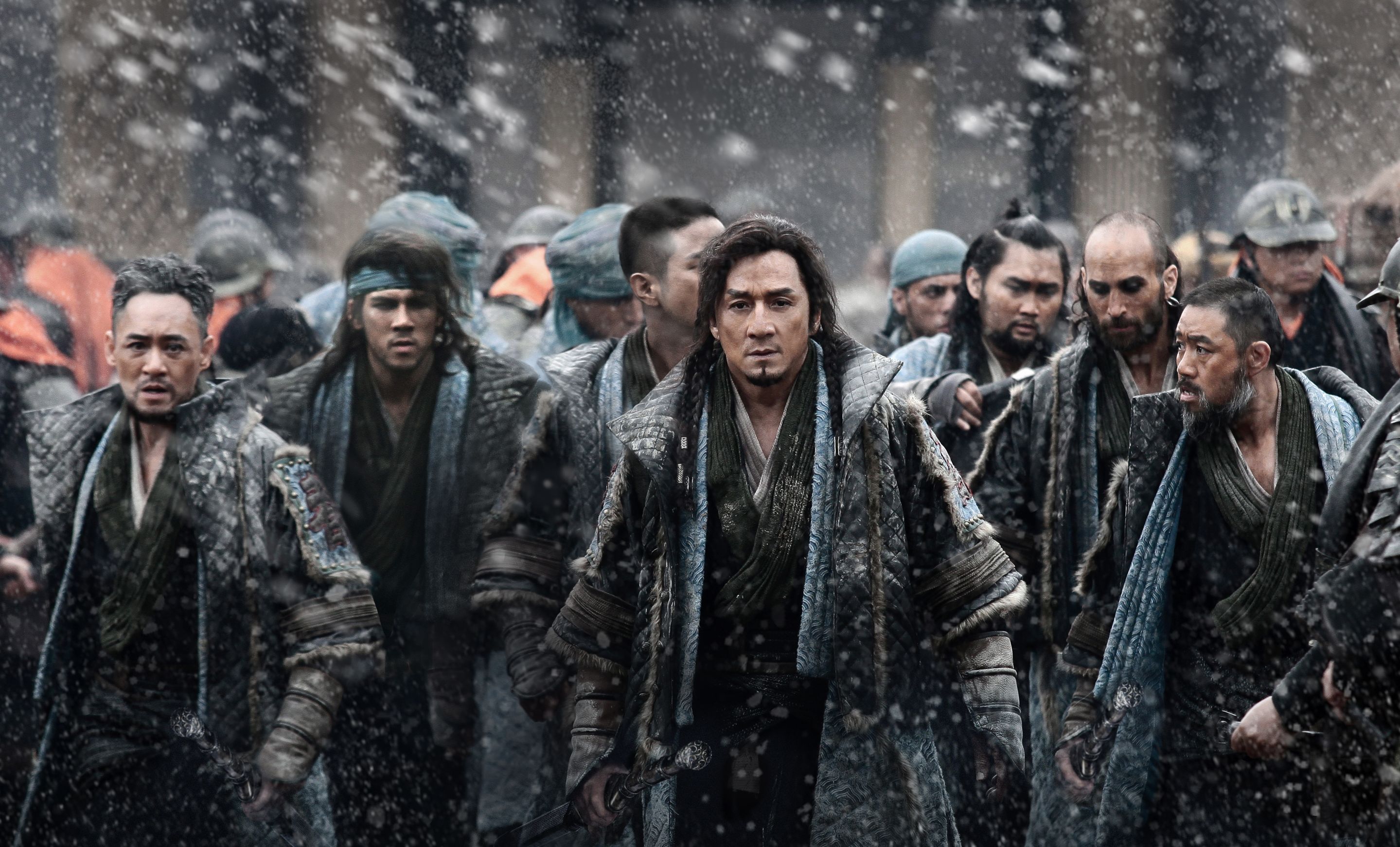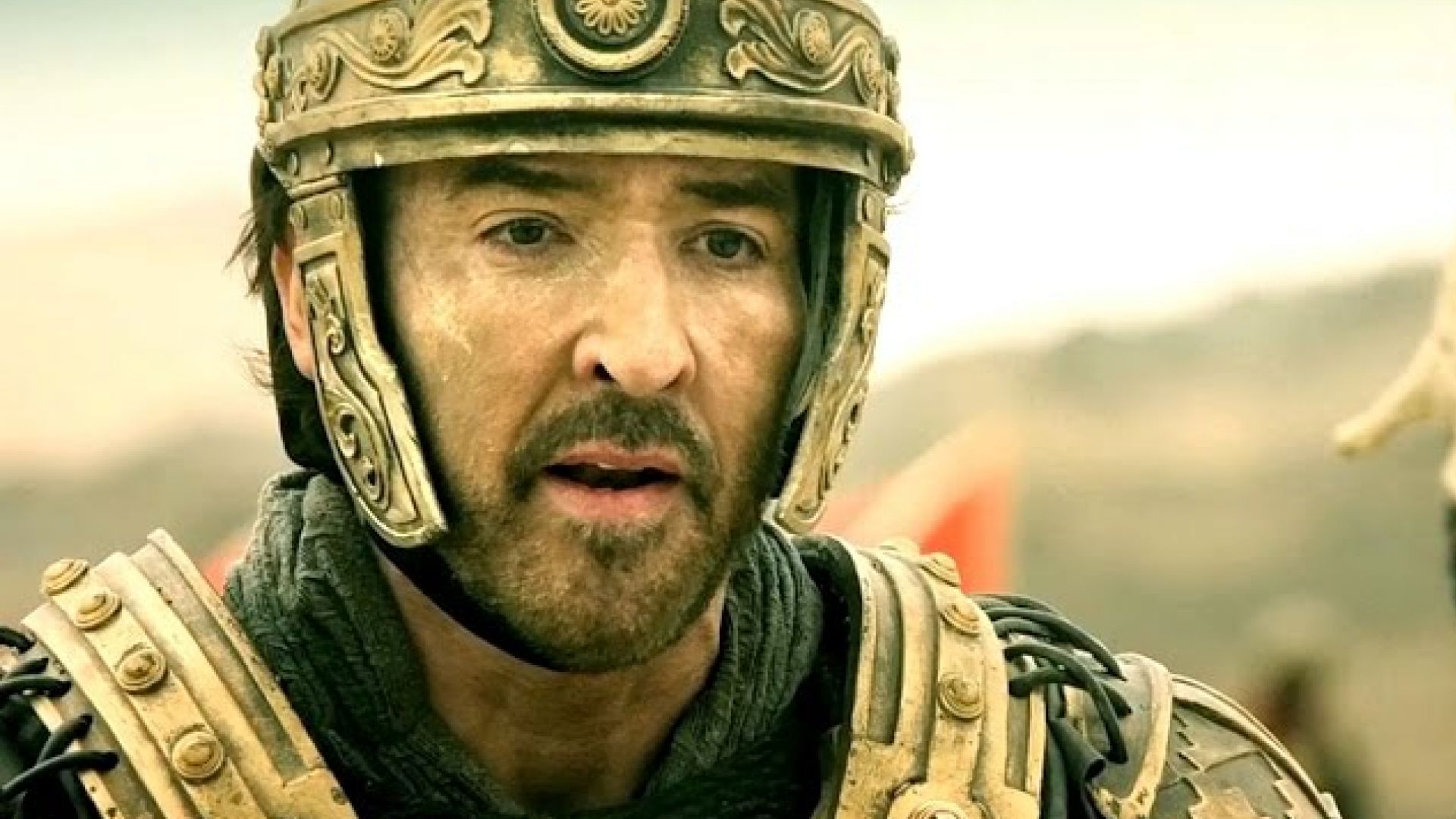
Review: Dragon Blade
 China during the Han Dynasty, 48 BC; Huo An (Jackie Chan) is the leader of a Protection Squad for the Silk Road - an important trading route that links the Far East with the Mediterranean Sea. The Protection Squad is transferred to a remote outpost for disciplinary reasons and has to reconstruct a ruined fort within a few days. The men feel threatened as a Roman legion suddenly appears in the whirling dust.
China during the Han Dynasty, 48 BC; Huo An (Jackie Chan) is the leader of a Protection Squad for the Silk Road - an important trading route that links the Far East with the Mediterranean Sea. The Protection Squad is transferred to a remote outpost for disciplinary reasons and has to reconstruct a ruined fort within a few days. The men feel threatened as a Roman legion suddenly appears in the whirling dust.
They initially start a fight - only the approaching sandstorm can stop the confrontation. Huo An offers shelter to the legion and the Roman soldiers show their gratefulness by supporting the construction work. A friendship slowly develops between Huo An and the Roman General Lucius (John Cusack), who recounts the fate of the blind heir Publius (Jozef Waite). His older brother Tiberius (Adrien Brody) is hungry for the throne and tracks the legion with a vast army. Huo An decides to help his new friends and requests support from various tribes that populate the region along the Silk Road.
In Dragon Blade, Daniel Lee attaches no importance to a correct presentation of the historical facts. He doesn’t mind that the Roman Emperor Tiberius wasn’t even born at that time. On the contrary, the director puts more emphasis on the fact that the story is internally consistent - and he succeeds.
There is no mistake in the plot, and the film provides a good mixture of action and drama. But a major point of criticism concerns the narrative’s simple pattern. There’s a clear separation between good and evil which makes the characters quite unilateral and stereotyping. Also, the message of Dragon Blade becomes clear very quickly as Huo An claims: “turn foe into friend”. This credo runs throughout the entire film and gets its biggest flaw in the course of time. It's fine that a blockbuster with a budget of $65 million focuses not only on visual effects and sensationalism, but also on a honourable message, however, Dragon Blade is just too pretentious in many facets. Daniel Lee and Jackie Chan take the moral high ground in such an intrusive way that one feels like attending a speech at the United Nations.
Nevertheless, the film has positive qualities: Dragon Blade excels especially with its epic combat scenes. The camera has captured each move of the very successful choreography meticulously. Slow motions make them visible for the audience, whereas the strong pace in the editing creates a striking contrast. A particularly exciting element of the film is the cultural clash of Chinese martial arts and gladiatorial fights. The musical score by Henry Lai emphasizes Tony Cheung’s impressive camera work and transports the character’s feelings to the audience in a versatile way.
Altogether Dragon Blade is an entertaining action adventure - a technical spectacle with elaborately decorated production designs and costumes.
